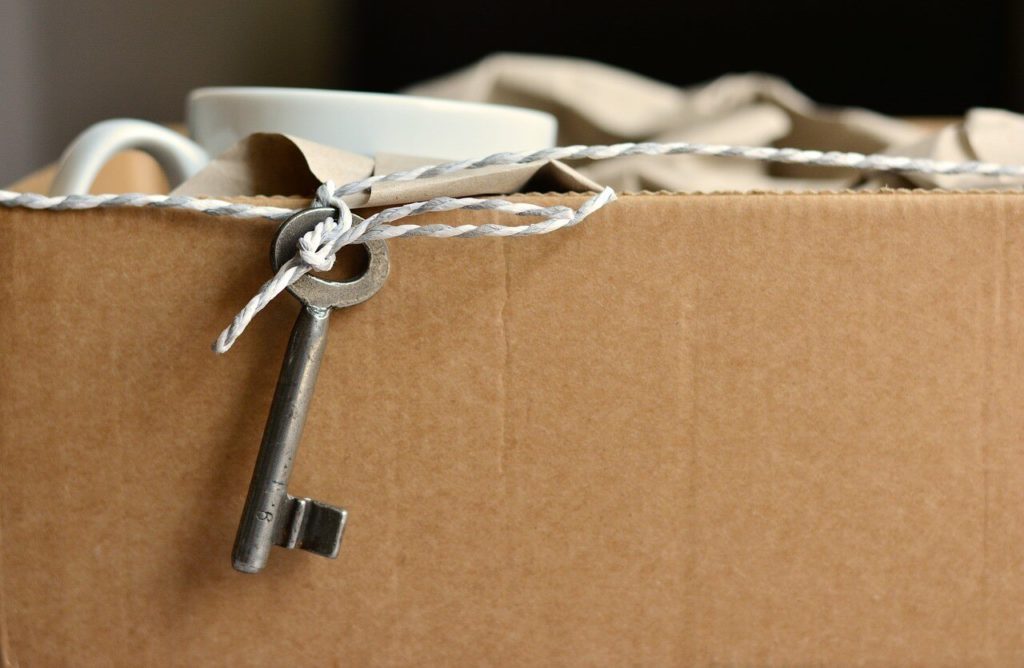Moving is always a stressful business, both for families and eternal old bachelors who honestly have zero intention of ever settling down. There are way too many factors to take into account: budget planning almost always falls through because life happens while we are chalking up strategies, traffic jams get in the way, packing is tedious, and just sorting through your stuff can be complete murder for the brain.
You can learn more about the most common problems that people face when moving house and how to efficiently deal with them.
All of this is made that much more difficult when you have to move on a relatively tight budget. Not being able to splurge on new containers and big name moving companies or state-wide famous transportation lines can really be depressing sometimes.
However, there are few ways to make this stressful affair easier on yourself. Keep scrolling down to find out how!

Be smart and ask for help early on.
Get your friends involved and do not shy away from neighbors with a kindly predisposition. Although too many hands on board can be trouble, going it all alone is a sure recipe for a disorganized disaster. Put together a trusted team and let your people help you. You will save both time and money that would otherwise go to hired hands. If you are moving because you are changing jobs, ask your new employer for relocation assistance. They may offer help in covering the costs of the move and resettlement. You can learn more about employers paying for moving expenses.
Come up with a timeline and stick to it.
Ideally, you should start your packing process a few weeks before the actual moving day comes around. Write down a plan and chore list of what to do over the upcoming days and cross them off one by one. This will make sure you are under less stress and will minimize the chances of wasting money simply because it is convenient.
Hoard all possible packing materials and supplies.
Before moving comes up on your schedule, you would likely think of boxes, tapes, foil, ropes, and the like as nothing more than annoying clutter that gathers dust. Think again.
Chances are, you made your decision to move long before you actually began sorting through your stuff. Use the time you spend home hunting and estimating offers to stock up on the transportation essentials, like cardboard boxes, loose old newspaper, leftover bubble wrap, and construction-type duct tape. Having your own stock of these things stashed away somewhere will save you tons of money when it is time to actually use them.
Have an “Open on First Day” box.
This is the well-known and universally loved survival strategy of all movers everywhere. It is, essentially, a well thought out supply of priority items that you will need as soon as you enter your new home and unload all the other boxes. You can get some nifty tips on preparing an essentials box.
The simplest and truest rule of thumb is to pack things you know you will need immediately, like toilet paper, your toothbrush, the coffee maker, clothes to sleep in, and so on. Again, it is a fool-proof strategy to prevent unnecessary spending on a spur.
Have a “Junk Box” as well.
No, this does not mean you should keep random pretty clutter. The junk box is the mover’s equivalent of the junk drawer – a place to keep all the stuff that you will inevitably need on and off up until the very moment of exiting the house. These items would typically include toiletries, medicines, documents, extra paper to use as box filling or for making quick fix labels, packing tape, scissors, pens and markers, and the like. That way you can avoid constantly running out to buy a thing you misplaced or packed away only to find that you still need it.
Clean along the way as you pack.
As soon as you have finished packing up an area of your home, like a room, hallway, or closet, stop and give it a thorough cleaning. Vacuum, scrub, mop and air out everything. This has several benefits.
Firstly, it will keep your view clear so you have a better idea of what is left to be done. Secondly, you will spare yourself the expense and bother of hiring cleaners after the whole ordeal of packing. And it will be of great help if you plan to sublet the residence that you are leaving, or if you were a renter yourself – it will increase the chances of getting you that security deposit refund.
Get several quotes before deciding on a company.
If your budget will allow it, hiring professional movers and packers can be of enormous help, but do not be hasty about it. Just calling up the cheapest recommended crew could cost you dearly in the long run. Take some time and get estimates from several companies. You can look for reliable moving companies information on 9Kilo.com or other similar comparison-type platforms.
You need to thoroughly understand exactly what is covered in the pricing plan, whether it is worth your money, and then choose the solution that will get you the best service at a reasonable rate.
Consider storage solutions.
Even if you are strict with throwing out trash, and even if you have a wildly successful yard or garage sale, there will likely be some items that you will want to keep or reclaim after a while. Antiques, artwork pieces, or family heirlooms are good examples.
For these situations, consider some independent storage solutions.
Just make sure not to forget about it, because monthly fees will stack up! A good alternative is to temporarily entrust your property to friends until you find a place for it.